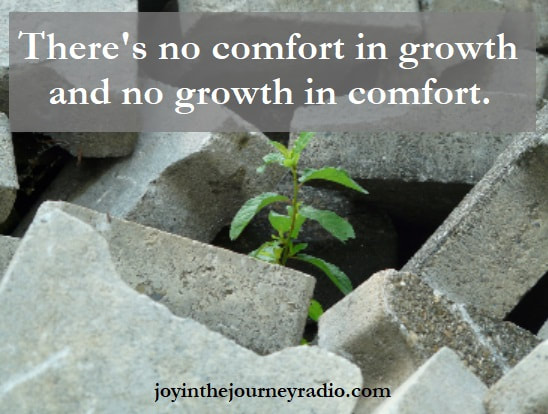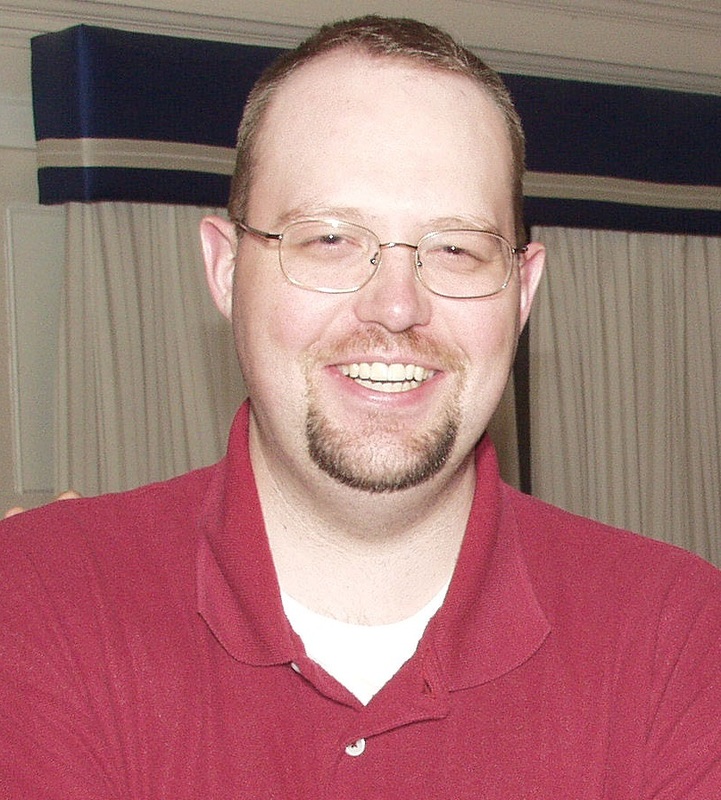Check your thinking Elder Christofferson starts with Job, recounting how Job’s sufferings tried him so deeply he began to condemn God for “wronging” him. God then reminded Job of His omnipotence and omniscience. Job, realizing he couldn’t hold a candle to his Maker, humbly let God prevail. In the end, “the Lord blessed the latter end of Job more than his beginning” (Job 42:12). Often the suffering of LDS singles leads them down the road of Job. They can feel wronged when they do their best to keep the standards of righteousness and yet desired righteous blessings don’t materialize. Worse yet, those blessings don’t show any sign of ever materializing. But the problem here is in how we think. We need to correct the faulty assumption that keeping the standards means we’ll have our desired blessings and certainly not in our way and on our schedule. Elder Christofferson taught,
The idea that “I’m not happy so God must be doing something wrong” assumes God’s main job is to make our lives blissfully care free. But God’s work is “to bring to pass the immortality and eternal life of man” (Moses 1:39). As we discussed last week, growth is often uncomfortable. Sometimes that discomfort comes from living without desired righteous blessings. Correct your assumptions  How then do the blessings we want come? Many LDS singles simply shrug their shoulders as they give the most common response: “I don’t know.” But other responses abound. In recent years, as the proportion of singles in the Church has grown, leaders have increasingly suggested the receipt of righteous blessings is largely out of our hands. They say God has an individualized and personalized plan for each of His children, and righteous blessings are dispensed as God executes that plan. Elder Christofferson appears to be in that camp when he taught,
I agree blessings which don’t conform to God’s will won’t materialize. However, I don’t think that means the lack of a particular blessing means it’s God’s will that blessing isn’t there. D&C 130:21 teaches every blessing is predicted upon obedience to the law connected with that blessing. If you don’t keep the particular law, you don’t get the particular blessing. Thus, any lack of companionship and marriage lies not in failing to keep the standards good enough but rather in the assumption that keeping the standards should yield the blessing of companionship and marriage. Those desired righteous blessings are predicated on a different law. Partner with Him You may well ask, “What is that different law?” The blessings of companionship and marriage come as singles progress through the stages of the dating journey. When singles follow the fundamental principles of that journey, they make progress in that journey. When they don’t follow fundamentals, they don’t progress. Period. Following fundamentals means becoming more agreeable, and that means changing you. Partnering with the Lord is the best way to know what changes you need to make now to become more agreeable. Partnering with the Lord also provides guidance, courage, and strength in making those changes. So a failure to see desired blessings in our lives should motivate us to increase our relationship with God, not diminish it. Elder Christofferson taught,
God hasn’t abandoned us simply because desired blessings haven’t come how or when we want. But we abandon Him when we lose faith in Him and allow that loss of faith to tolerate a lack of devotion to our covenants and our place in His work. That work is not about making life easy and comfortable but about helping others progress along a path that stretches into eternity. When life doesn’t go as planned, we need to increase our relationship with God. Hard times are a call to deepen discipleship. By heeding that call, we’ll find the guidance we need to know the next step as well as the faith and courage to take it. And that will bring us more joy in our journey.
0 Comments
not so, my firstborn in the wilderness, righteousness could not be brought to pass, neither wickedness, neither holiness nor misery, neither good nor bad. Wherefore, all things must needs be a compound in one; wherefore, if it should be one body it must needs remain as dead, having no life neither death, nor corruption nor incorruption, happiness nor misery, neither sense nor insensibility” (2 Nephi 2:11). To Father Lehi’s list of essential opposites we can add this pair: comfort and growth. We all want growth, but growth by its very nature is often uncomfortable. And if we avoid the discomfort, we’ll never grow. There’s no comfort in growth but also no growth in comfort. Understand the nature We’d all do well to remember these essential opposites as we encounter challenges in our lives. Many LDS singles naturally retract from the discomfort their challenges bring. That has nothing to do with being single and everything to do with being human. But the growth they want can’t come without discomfort. Many of the challenges of LDS singles life come from the nature of singleness. You’re made to connect with another half, but you have only the half you are. Everything in your life has to come from you. All your financial support has to come from you. Maintaining everything in your life has to come from you. If something doesn’t work, the fix has to come from you. If you have children to raise, then that too has to come from you. We’ve all been there in Singleland. Some of us have been there longer than others, and others more are still there. In fact, that’s where the majority of the adult Church membership is. And the majority of that majority is stuck right there in Singleland because they keep looking for the comfortable exit in the futile hope they can grow without discomfort. Embrace the discomfort That hope is futile because growth and comfort are essential opposites. You can’t grow if you stay comfortable. To have growth, you must be willing to embrace discomfort. Notice I said embrace. A mere acceptance will not do. You must put your arms around the pain and take it in. You must channel it into the molding of your character. You must leverage it to your advantage. You must take what appears to hold you back and turn it into the very impetus that propels you forward. Most people don’t think this way, which is why most people when presented with challenge will whimper and wallow in self-pity. Those who successfully transcend — not just overcome but transcend — their challenges are those who embrace the discomfort. And that embrace is what allows them to experience the most growth from their challenges. Experience maximum growth We’ve all had the experience not just of trials but also of realization after the trial that the uncomfortable experience made us stronger. We learned something we didn’t know before. We have a perspective that’s more complete because of the experience the trial provided. We grew because of the discomfort. But most of us leave it there, taking just what life has forced upon us. We’re leaving some growth on the table when we do that. There’s so much more growth we could experience if only we embraced the discomfort. And that discomfort is something LDS singles especially should want to embrace. We’ve talked often about the fundamentals of the dating journey and how you must become more agreeable by changing you. That change you most need is almost always uncomfortable. But embracing that growth by being all in with both your circumstances and what you do in those circumstances will bring that change to you more quickly and more completely. And maximum growth leads to maximum joy. There’s no comfort in growth but also no growth in comfort. May we each remember that truth as we each consider our response to the challenges in our own lives. And may we each embrace the discomfort in those challenges. Doing so will maximize the growth we’ll experience. And that will bring us more joy in our journey.
Thinking back on my experiences with LDS singles over the years (in addition to being one myself), I’ve selected some questions that appear over and over again yet yield poor results. Also, for each one I’ve better questions that lead to better answers that yield better results. At the end of the day, we all want results, but tackling your challenges often begins with asking the right questions. Change your thinking Let’s start with what’s probably the leader of the pack. Many of us are just trying to do the right thing while we find our way in this world, and yet many of us just keep getting beat down. Over and over again, when things don’t work out, we ask, “Why me?” I was like that in my 20s. “I don’t understand,” I’d say to myself. “I’m trying to do what’s right. Why is dating so hard? Why can’t they see what a good person I am? Why does this have to happen to me?” With questions like those guiding my thinking, I didn’t get desired results. And my struggles intensified because I kept doing what I’d been doing. I kept asking the same questions, which led to the same answers, which brought the same results. Things kept getting worse until I reached a turning point: I realized I was responsible for my life and whatever it was. Most turn away from such thoughts, but I embraced it. And as a result, I started asking different questions. Instead of asking “Why me?” I started to ask “What do I do now?” Question your questions I can’t begin to tell you how fundamental that flip in thinking was. Instead of playing the victim, I started playing the victor. Instead of feeling all was hopeless and lost, I began feeling hopeful that everything could change in my favor. The blessings I wanted could come to me. That’s another question I started asking. Many singles wonder when their blessings will come to them, especially as the years being single begin to accumulate. But instead of asking “When will my blessings come?” it’s far more productive to ask “What can I do to near myself towards my blessings?” So many want their struggles to end, but they want the solution to come on demand without doing any real work to get it. The true joy in life unfolds when you use your agency to quit wallowing in the wanting and start wading in the working. That’s one major difference between less and more effective questions. Less effective questions assume you don’t need to change you, and therefore you don’t need to act. But results come only from action, so taking no or poor action means getting no or poor results. More effective questions, conversely, assume you must change you, and thus their answers encourage you to exercise the power of your agency and act. Better action always produces better results. Claim your power That’s why asking poor questions never delivers rich rewards. I’m sure many if not most of us have asked, “Why does it have to be so hard?” But how many of us have stopped to examine the assumptions behind that question? Those who do are more likely to encounter the better question: “How can I get better?” It’s one thing to wish things were better. Everyone does that. It’s another to wish you were better, and most don’t do that. They focus on what’s outside of themselves, and in so doing they disempower themselves because the power they seek to change their life is already inside of them and by looking outside themselves they focus away from the very power they seek. When you continually focus on what you can do to grow into something that isn’t challenged by what currently challenges you now, you can achieve amazing results. You’ll always get better answers by asking better questions. So when you find yourself asking questions about the state of your life, step outside yourself and ask if you’re asking the right questions. Only by asking the right questions will you find the right answers, and that will bring you more joy in your journey.
Yet when I applied this common cure, I found it didn’t really cure anything. All it did was make me forget myself for a time. When my service was done, I still lacked a companion, and the associated feelings with that lack returned all the more poignantly. Eventually, I learned why I felt the way I did and why service isn’t the difference. The apparent problem Service is bandied about as the bandage for lonely souls, and sure, I’ve felt better for a while as I forgot my problems for a time. But after serving I was always returned to my reality. The “problem” of being single and lonely was still there. So if it doesn’t really work, why is service dispensed so often to singles as the answer for their challenges? I’ve learned most people don’t want to get too involved because that means taking on their burdens and most have enough of their own to bear. It’s easier to give some glib advice so they feel like they’re helping without getting too involved. But there’s a complication: The advice is partially true. It’s not like service doesn’t have any effect. My problems did seem to go away while I served, even if it was only temporarily. That benefit evidences some effect from service. What dissatisfied me was the incompleteness of that influence. When the service was done, I was always left with myself and my life and the feelings associated with lacking a companion. My underlying condition was unchanged. The real difference  Eventually something did change for me, resulting in a realization of what makes the real difference. What changed? It was my thinking, of course! I began to see a new perspective on my situation. Service didn’t solve my problem because my problem wasn’t a lack of service. My problem was a lack of giving my all to what I did. As we’ve discussed countless times on the broadcast, happiness is giving your all to all the right things for you. Service is right for everyone, but I wasn’t happy from my service because I wasn’t giving my all to it. Thus, service became little more than a distraction from my real life, a way to fill time and momentarily escape my challenges. Changing the way I thought about service made all the difference. By giving my all to what I did while serving, I found a sense of fulfillment previously unknown. And that fulfillment yielded satisfaction long after the service moment had ended. The loneliness of being single had been replaced with a sense of connection to something much larger than myself. And it was all because I gave my all to what I did. The true answer  In the end, fulfillment comes from what you give of yourself while you do it. The Savior extolled the example of the widow who cast her last two mites into the treasury because, unlike the rich who gave some smaller portion of their greater wealth, she had given her all. And it was giving her all that made the difference. Likewise, LDS singles can make a difference in their lives when they give their all to what they do. Service isn’t the difference, but what we give of ourselves while we serve is. So instead of advising others to combat loneliness with service, we should advise them to give their all in contributions to others. That’s something we at Joy in the Journey Radio call a personal ministry. Ultimately, giving our all can bring us closer to the Savior Who gave His all for all of us. The meaning of His sacrifice comes not from His life but His willingly giving that life. When we give our all to what is right for us, we follow in those footsteps. Service isn’t the difference, but giving your all to what you do is. So don’t hold back. Give your all to all that is right for you. Not only will you find greater happiness, but you’ll fortify yourself against the challenges of life. And that will bring you more joy in your journey.
|
Author
Howdy! I'm Lance, host of Joy in the Journey Radio. I've been blogging about LDS singles life since 2012, and since 2018 I've been producing a weekly Internet radio show and podcast to help LDS singles have more joy in their journey and bring all Latter-day Saints together. Let's engage a conversation that will increase the faith of LDS singles and bring singles and marrieds together in a true unity of the faith.
Comment
Joy in the Journey Radio encourages the free discussion of ideas but reserves the right to remove and/or block comments which do not conform to LDS standards.
Donate
Joy in the Journey Radio offers many free resources to help LDS singles everywhere, but it certainly isn't free! Help Joy in the Journey Radio in its mission to improve the lives of LDS singles by donating today.
Posts by Month
December 2022
Categories
All
|








 RSS Feed
RSS Feed